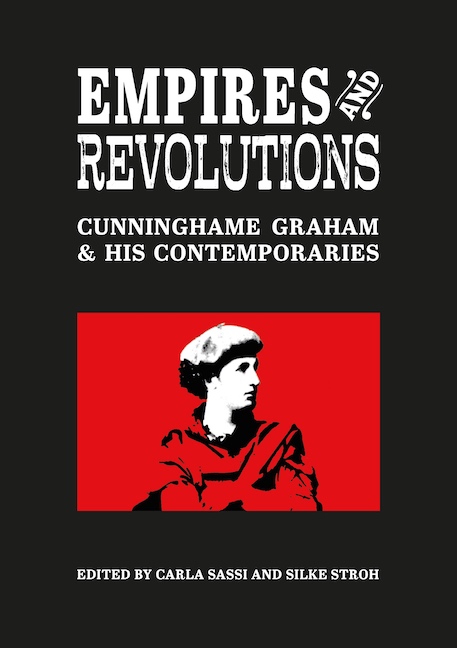
EMPIRES AND REVOLUTIONS
Cunninghame Graham and His Contemporaries
Edited by Carla Sassi and Silke Stroh
Published in: Paperback
By: Scottish Literature International, 2017
Price: £19.95 / €22.95 / US$25.95
ISBN 978-1-908980-25-0
This book is available internationally and can be ordered from any bookseller
The European age of empires launched a process of capitalist globalisation that continues to the present day. It is also inextricably linked with the spread of revolutionary discourses (in terms of race, nation or social class): the quest for emancipation, political independence, and economic equality. Robert Bontine Cunninghame Graham (1852–1936), in both his life and his oeuvre, most effectively represents the complex interaction between imperial and revolutionary discourses in this dramatic period. Throughout his life he was an outspoken critic of injustice and inequality, and his appreciation of the demands and customs of diverse territories and contrasting cultures were hallmarks of his life, his political ideas, and his writing. These essays explore the expression of these ideas in the works of Cunninghame Graham and of other Scottish writers of the period.
CONTENTS
Introduction
- R. B. Cunninghame Graham: Janiform Genius (Cedric Watts)
- The Local and the Global: The Multiple Contexts of Cunninghame Graham (John M. MacKenzie)
- Anti-Slavery Discourse in Three Adventure Stories by R. M. Ballantyne (Jochen Petzold)
- Don Roberto on Doughty Deeds; or, Slavery and Family History in the Scottish Renaissance (Michael Morris)
- Empire and Globalisation in John Francis Campbell’s My Circular Notes (Jessica Homberg-Schramm)
- Nineteenth-Century Argentine Literature and the Writings of R. B. Cunninghame Graham (Richard Niland)
- R. B. Cunninghame Graham and the Argentinean Angelito (Jennifer Hayward)
- Opposing Racism and Imperialism: Isabella Fyvie Mayo’s search for literary space(s), 1880–1914 (Lindy Moore)
- The Empire in Cunninghame Graham’s Parliamentary Speeches and Early Writings, 1885–1900 (Lachlan Munro)
- White-Skinned Barbarians in Selected Tales by R. B. Cunninghame Graham (John C. McIntyre)
- Violet Jacob on Capital Relation: Local and Global Flows of Privilege and (Im)mobility (Arianna Introna)
Notes on Contributors